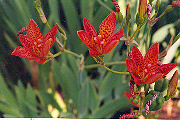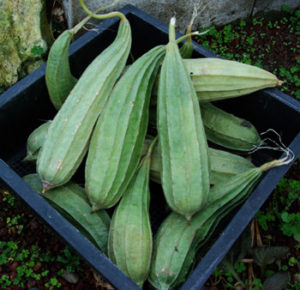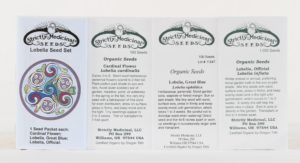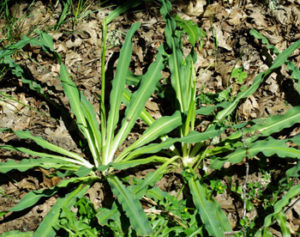Lobelia, Great Blue (Lobelia siphilitica), packet of 100 seeds
$4.95
Family: Lobelia (Lobeliaceae)
Hardy to Zones 4 to 9
Herbaceous perennial. Rivals in its beauty the most pampered of hybrids, yet it is a long-lived, native American perennial. I’ve seen them growing wild in Meigs County, Ohio, in a moist, semi-shaded ditch. Among the Fox, the finely-chopped roots were shared and eaten by a couple to avert divorce and renew love. Lobelias prefer part to full sun, rich, moist soil, much water. Short-lived seed. Light-dependent germinators. Sow seed in spring or fall. Sprinkle seed on surface, tamp securely and keep evenly moist until germination. Average germ time in warm soils is 1 to 3 weeks. Water very gently. Space plants 1 to 2 feet apart. Flowers vibrant light blue to 2 feet.
100 seeds per packet, Open Pollinated, Untreated, NO GMO’s
In stock







Question
Christen –
Does Great Blue Lobelia have the same low-dose medicinal properties as Lobelia inflata?
Upvote if this was helpful (0) Downvote if this was not helpful (0) Watch Unwatch Flag for removal
Richo Cech –
Hi Christen,
Thanks for contacting. In short, no, they are not the same. But great blue does contain lobeline, the active alkaloid. This is discussed in-depth in my new book “Growing Plant Medicine Vol 2” which is coming out soon. Richo
Upvote if this was helpful (0) Downvote if this was not helpful (0) Flag for removal
Question
Kerrie –
Hi there—wondering if it is necessary provide any stratification for seeds like this if we order & want to plant this spring (zone 6) or if they arrive pre-stratified? I’m sorry if this question has been answered elsewhere on your site. Thank you!
Upvote if this was helpful (0) Downvote if this was not helpful (0) Watch Unwatch Flag for removal
Richo Cech –
hi kerrie, if you click on the photo, you get the monograph, and that gives you the answers. We don’t stratify dry seeds that we sell. stratification involves moistening them, and is done by the gardener in season. some of our fresh seeds (e.g. mandrake, ginkgo) are stored moist and these could be considered stratified at receipt. Anyhow you have a good plan–this herb requires no stratification and here is what it says in the monograph: Sow seed in spring or fall. Sprinkle seed on surface, tamp securely and keep evenly moist until germination. Average germ time in warm soils is 1 to 3 weeks. Water very gently.
Upvote if this was helpful (1) Downvote if this was not helpful (0) Flag for removal
C. Thomas –
Can this be used medicinally interchangeably with Lobelia inflata?
Upvote if this was helpful (0) Downvote if this was not helpful (0) Flag for removal
Richo Cech –
hello C. Thomas, thanks for contacting and this is a useful question. really, they are different herbs, and the way one uses Lobelia inflata–in low doses to do rather powerful things–means it is best to stick to the offical plant. richo
Upvote if this was helpful (0) Downvote if this was not helpful (0) Flag for removal